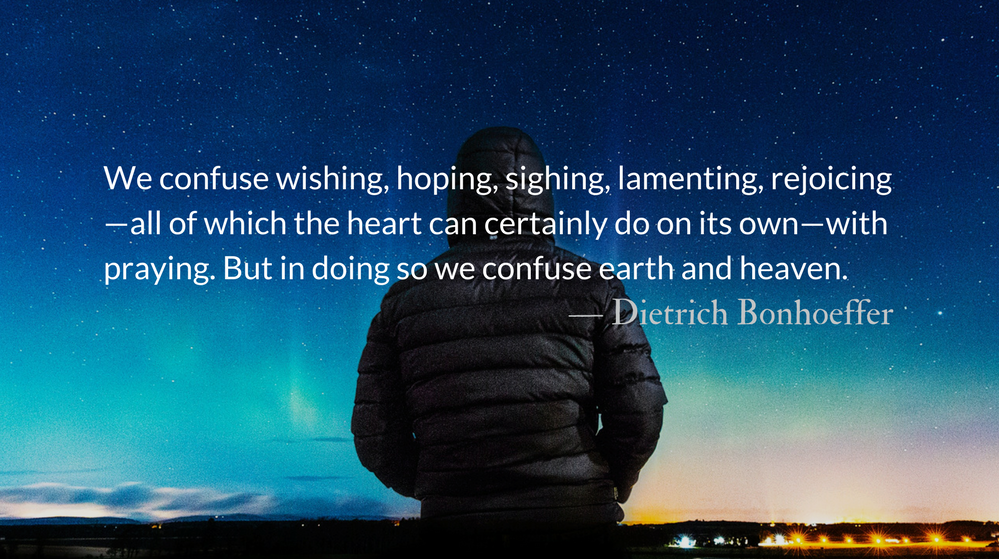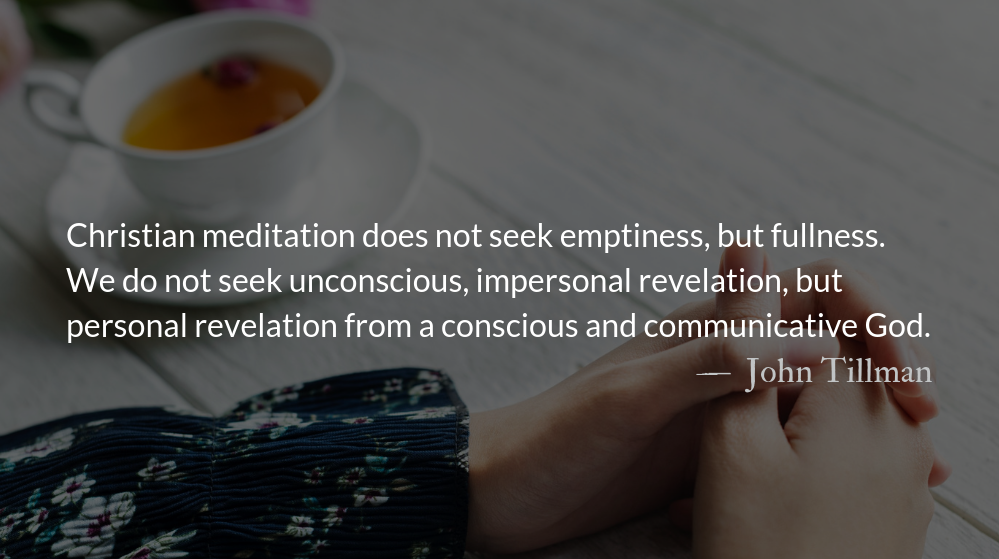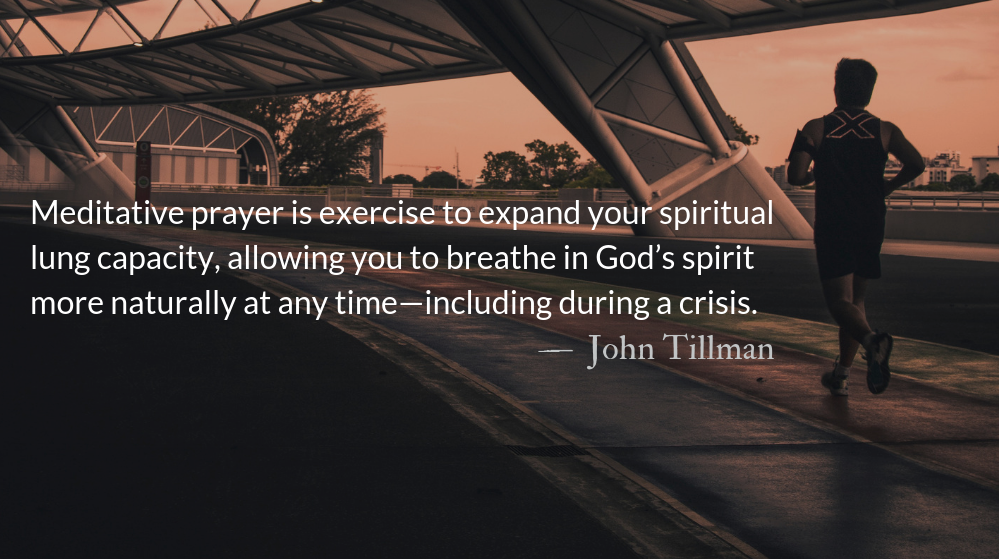From John:
We have, this week, dipped our toes in the waters of Christian meditative prayer. This is only, however, one branch of the discipline of prayer. So we take the opportunity to look back at this Readers’ Choice post on learning to pray.
Prayer, like cultivation, is not natural. God created a wild, natural world. But he cultivated a park, a garden, for his relationship with us. May we work to cultivate a varied garden of prayer in which to walk with God daily.
Suggested by reader, Suzanne Coupe
I’m not naturally a “prayer warrior” and this devo brought to mind that there are many things I do that aren’t comfortable or pleasant within my earthly relationships, but I do them because I care about that person. My time in prayer with the LORD is an expression of how important He is to me, and sometimes that means putting aside what I want to do in order to do what He wants me to do…what will be best for the strength of our relationship and the glory of Jesus.
Posted February 21, 2018 with readings from Job 21 and 1 Corinthians 8.
Is my complaint directed to a human being? Why should I not be impatient? — Job 21.4
Reflection: Learning to Pray :: Readers’ Choice
The Park Forum
“This is a dangerous error,” warns Dietrich Bonhoeffer, “to imagine that it is natural for the heart to pray.” The great theologian, who lost his life in a Nazi concentration camp in 1945, was no stranger to unanswered prayer. He wrote:
It can become a great torment to want to speak with God and not to be able to do it—having to be speechless before God, sensing that every cry remains enclosed within one’s own self, that heart and mouth speak a perverse language which God does not want to hear.
This may have contributed to the reason Bonhoeffer did not believe it was possible to pray without the power of God:
We confuse wishing, hoping, sighing, lamenting, rejoicing—all of which the heart can certainly do on its own—with praying. But in doing so we confuse earth and heaven, human beings and God. Praying certainly does not mean simply pouring out one’s heart. It means, rather, finding the way to and speaking with God, whether the heart is full or empty. No one can do that on one’s own. For that one needs Jesus Christ.
Not wanting “needs Jesus Christ” to devolve into mere platitude, Bonhoeffer explains how to pray the words of God—Scripture—through the power of God—Spirit:
Jesus Christ has brought before God every need, every joy, every thanksgiving, and every hope of humankind. In Jesus’ mouth the human word becomes God’s Word. When we pray along with the prayer of Christ, God’s Word becomes again a human word.
If we want to read and to pray the prayers of the Bible, and especially the Psalms, we must not, therefore, first ask what they have to do with us, but what they have to do with Jesus Christ. We must ask how we can understand the Psalms as God’s Word, and only then can we pray them with Jesus Christ. Thus it does not matter whether the Psalms express exactly what we feel in our heart at the moment we pray.
Perhaps it is precisely the case that we must pray against our own heart in order to pray rightly. It is not just that for which we ourselves want to pray that is important, but that for which God wants us to pray. If we were dependent on ourselves alone, we would probably often pray only the fourth petition of the Lord’s Prayer. But God wants it otherwise. Not the poverty of our heart, but the richness of God’s word, ought to determine our prayer.
Prayer: The Call to Prayer
Know this: The Lord himself is God; he himself has made us, and we are his; we are his people and the sheep of his pasture. — Psalm 100.2
– Prayer from The Divine Hours: Prayers for Summertime by Phyllis Tickle.
Prayers from The Divine Hours available online and in print.
Today’s Readings
Ezekiel 31 (Listen – 3:31)
Psalm 79 (Listen – 1:50)
This Weekend’s Readings
Ezekiel 32 (Listen – 5:30) Psalm 80 (Listen – 1:58)
Ezekiel 33 (Listen – 6:03) Psalm 81-82 (Listen – 2:36)
Additional Reading
Read More about Persistence in Prayer
When Paul says, “I’ll pray for you,” he actually follows through. May we share that same sense of commitment the next time we utter those simple words, “I’ll pray for you.”
Read More about Uniqueness of Prayer
Our prayer is unique. But this does not mean that it can be merely whimsical, without definite patterns and commitment.
Support our Work
Each month over 22,000 Park Forum email devotionals are read around the world. Support our readers with a monthly or a one time donation.











